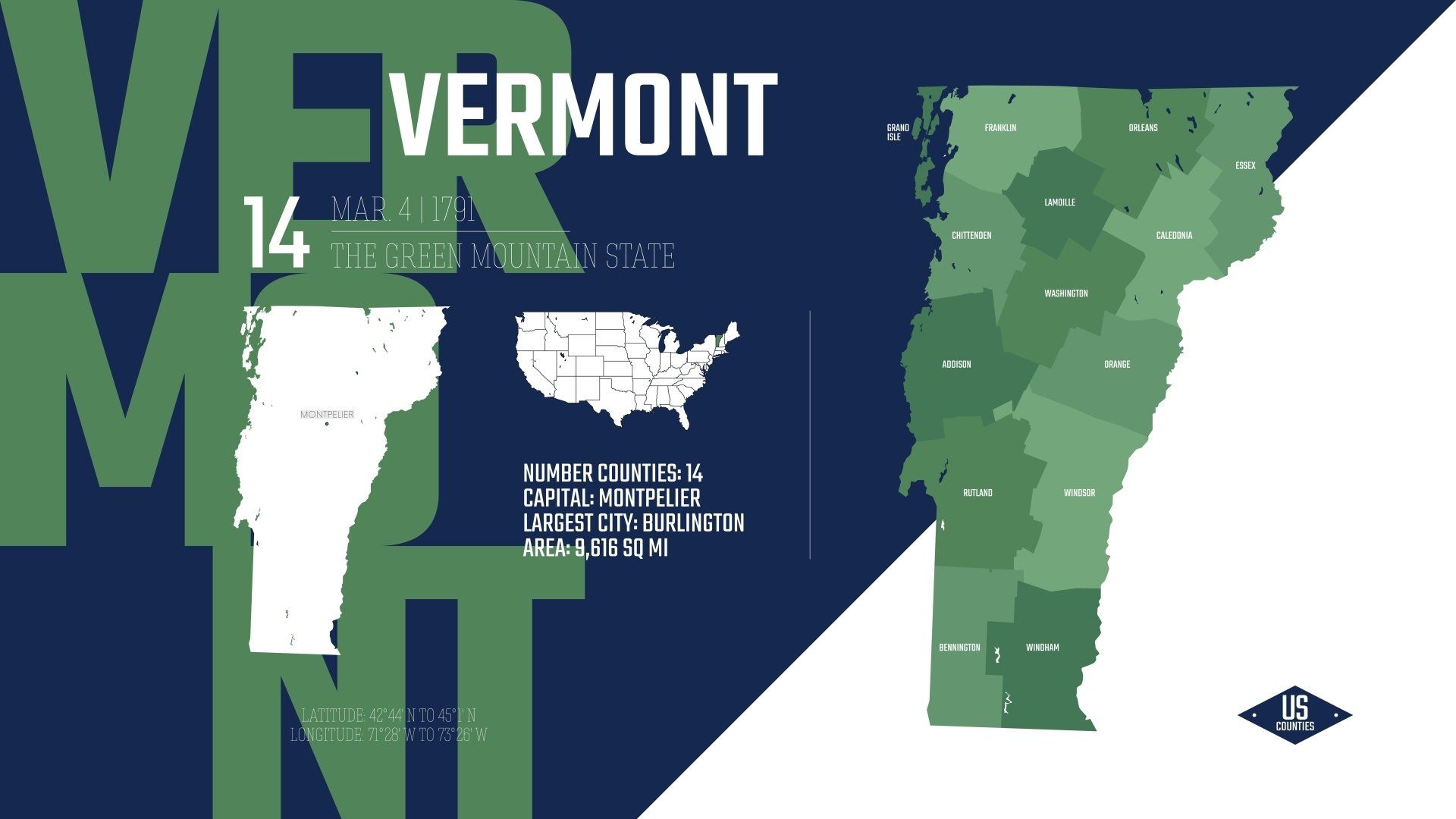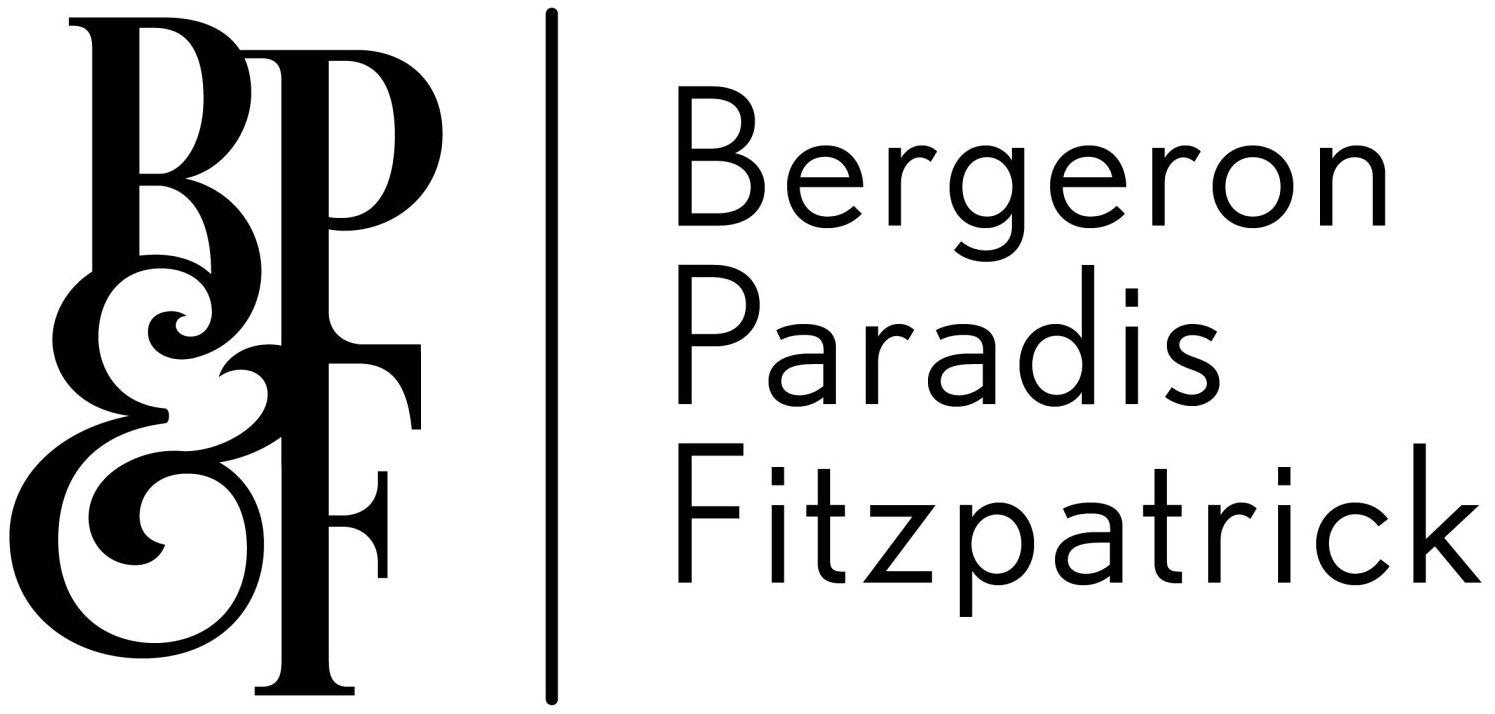News & Updates

In life, we often plan for the expected and the unexpected. Yet, when it comes to addressing potential incapacity in adulthood, many individuals and families are unprepared. Although adult guardianship may be presented as an option for helping a loved one who is unable to make health, financial, or personal care decisions on their own, it can be an expensive, intrusive, and slow process that may not align with your wishes or timeline. At Bergeron, Paradis & Fitzpatrick, we believe in empowering our clients to plan for the future while avoiding the need for adult guardianship whenever possible. Read on to discover why avoiding adult guardianship is a prudent choice and discuss alternative ways of planning for incapacity. The Downsides of Adult Guardianship Expense and Intrusiveness One of the primary reasons to avoid adult guardianship is the financial burden it can impose. The process involves court fees, legal expenses, and ongoing oversight, which can quickly add up. Prior to the establishment of guardianship, the person in need of protection must undergo an intrusive evaluation by a court-appointed evaluator. Furthermore, it can be emotionally taxing, as it involves the court appointing a guardian to make decisions for an incapacitated individual. These decisions may not align with your preferences and values, or the preferences and values of your loved one. Delays in Receiving Support Adult guardianship is a time-consuming legal process that can result in significant delays in obtaining necessary support and care for you or your loved one. While awaiting court decisions, the individual for whom guardianship is being sought may be left without the assistance they so urgently need. This is especially critical in situations where immediate medical or financial decisions are required. Loss of Autonomy Avoiding an adult guardianship is not only about saving time and money; it's about maintaining autonomy and ensuring that the individual’s needs are met promptly and in alignment with their wishes. Alternative Ways to Plan for Incapacity Planning for incapacity is a crucial aspect of estate planning that can help you and your loved ones avoid the complexities and expenses associated with adult guardianship. It provides peace of mind and ensures that your wishes are respected. Advance Directives Advance directives, such as living wills and healthcare proxies, allow individuals to express their medical wishes and appoint a trusted agent to make healthcare decisions on their behalf. These documents ensure that medical care aligns with your preferences, eliminating the need for guardianship in healthcare matters. Durable Powers of Attorney Durable powers of attorney grant someone you trust (an agent) the authority to manage financial and legal affairs on your behalf if you become incapacitated. This provides a seamless transition of decision-making and eliminates the need for a court-appointed guardian to manage your finances. Revocable Trusts A revocable trust allows you to transfer assets into a trust while maintaining control over them during your lifetime. In the event of incapacity, the successor trustee you've appointed can manage and distribute assets according to your instructions. This can avoid the need for a guardian to handle financial matters. Contact a Vermont Estate Planning Law Firm Today At Bergeron, Paradis & Fitzpatrick, we specialize in estate planning and can help you create a comprehensive plan tailored to your unique circumstances. Our experienced attorneys can guide you through the process of establishing advance directives, durable powers of attorney, and revocable trusts to protect your loved ones and your assets. The dedicated team of legal professionals at Bergeron, Paradis & Fitzpatrick is here to provide you with the guidance and support you need. Contact us today to schedule a consultation and start building a plan that puts your family's well-being first. Your peace of mind is our priority.

Real estate transactions are complex and typically involve substantial sums of money. As such, they are fertile ground for a variety of legal issues, from contract disputes to title issues. Anytime you are dealing with an investment of this size, it’s in your best interest to seek legal counsel. Whether you’re buying or selling, an unexpected legal matter can easily derail your plans and cost you significant time, money, and resources. Although most real estate legal issues can occur in any type of real estate transaction and in any location across the country, some potential legal hurdles are unique to Vermont. Below we discuss some of the most common legal issues in real estate in Vermont and nationwide. Real Estate Legal Issues That Can Occur Anywhere in the U.S. Let’s start by addressing common legal issues that can arise in real estate transactions anywhere in the country. Property disputes: This can occur when there is a disagreement over the ownership or boundaries of a property. Property disputes can arise due to boundary encroachment, easement disputes, or competing claims to the property. Non-disclosure: This occurs when a seller fails to disclose a known defect in the property to the buyer. Failure to disclose can result in a breach of contract or fraud. Zoning and land use regulations: Local zoning laws regulate how property can be used and developed. Violations of zoning regulations can lead to legal disputes, fines, and even property seizure. Title issues: Title issues arise when there is a problem with the ownership history of a property. Common title issues include liens, judgments, and easements that can affect the transfer of ownership. Contract disputes: Disputes may arise when there is a disagreement over the terms of a real estate contract. For example, a buyer may back out of a deal due to a disagreement over repairs or financing. Environmental issues: Environmental concerns can arise when there is a contamination or other hazardous material on a property. This can lead to legal issues and liability for the property owner. Foreclosure and bankruptcy: Foreclosure occurs when a property owner defaults on a mortgage loan. Bankruptcy can also impact real estate transactions and ownership rights. It is important to work with an experienced VT real estate attorney to navigate these legal issues and protect your rights as a buyer or seller. Real Estate Legal Issues Unique to Vermont The above legal matters can occur in any state and locality, but the issues below are unique to — or particularly common in — the state of Vermont. Land use regulations: Vermont has strict land use regulations, including Act 250, which regulates development projects that meet certain size or environmental criteria. Additionally, Vermont's "smart growth" laws aim to encourage development in designated downtown areas and discourage development in rural areas. Environmental concerns: Vermont is known for its natural beauty and environmental consciousness, and environmental issues are an important consideration in real estate transactions. For example, properties may need to be tested for radon gas, which is common in the state. Property taxes: Vermont has relatively high property taxes compared to other states, and the state's property tax system can be complex. For example, properties are assessed at their "fair market value," which can be subject to interpretation. Homeowner associations: Vermont has laws governing homeowner associations (HOAs), which are common in many real estate developments. These laws outline the rights and responsibilities of HOAs and their members, and can be complex. Foreclosure laws: Vermont has specific laws governing foreclosure proceedings, including a requirement for mediation before foreclosure can proceed. Property disclosure requirements: Vermont requires sellers to disclose certain information about their property to potential buyers, such as the presence of lead-based paint, underground storage tanks, and other environmental hazards. Anyone considering buying or selling property in Vermont should consult with a qualified real estate attorney to ensure compliance with all relevant laws and regulations. Contact a Vermont Real Estate Attorney Today If you are involved in any type of real estate transaction, the skilled legal team at Bergeron, Paradis & Fitzpatrick can help. Contact us today for a confidential consultation about your case.

Are you concerned about the tax implications of leaving wealth to your loved ones? You may wonder whether your estate will be subject to taxes when you die, and how you can reduce your liability. Or you may wonder whether a tax burden will pass to your beneficiaries or heirs. Most Vermonters do not need to be concerned about paying any estate tax when they pass away. In Vermont, estates valued in excess of $5 million are subject to a flat estate tax. However, careful estate planning may help to reduce or even avoid these taxes. At Bergeron, Paradis & Fitzpatrick PC, we believe that everyone can benefit from our customized approach to estate planning, regardless of the size of your estate. Read further to learn about estate taxes in Vermont and how our team of knowledgeable estate planning attorneys can help craft a plan that meets the needs of your family. Vermont Estate Tax Exemption The threshold for the Vermont estate tax is $5 million in 2023, which means that most Vermonters will not be subject to estate taxes. If your estate is worth less than $5 million, it will not be subject to estate tax in Vermont. Even if your estate happens to be more than $5 million, only the amount over $5 million will be subject to the estate tax, which is applied at a flat rate of 16%. For example, if your estate is worth $8 million, the first $5 million is exempt. Only the remaining $3 million would be taxed at 16%, resulting in owed estate taxes of $480,000. Determining the Value of Your Estate Determining the value of your estate is a critical step in any estate planning process. An estate planning lawyer can help determine whether your estate may be liable for any taxes, as well as identify steps you can take in your lifetime to avoid or reduce tax liability. It is also important to work with an experienced tax professional when assessing your tax risks. The value of your estate is the sum of all your assets minus your liabilities. Your assets can include everything from your savings account, to your small business, to an annuity that has not yet been paid to you. An estate planning lawyer can help identify and calculate the value of your assets and liabilities to determine the size of your estate. Federal Estate Tax The threshold for the federal estate tax exemption is $12.92 million in 2023 – therefore if your estate will not be subject to Vermont’s estate tax, it should also be free from federal estate taxes. Unlike Vermont’s flat tax, the federal estate tax rate is progressive and ranges from 18% to 40%, depending on the amount of assets over $12.92 million. Also unlike Vermont’s estate tax, the federal estate tax exemption is portable for married couples. This means that with the right legal advice, a married couple can protect up to twice the estate size ($25.84 million in 2023). No Vermont Inheritance Tax Many of our estate planning clients express concern for the tax implications to their beneficiaries and wonder whether their inheritance will be taxed. Quite simply, Vermont does not have an inheritance tax. However, some states do tax assets that are distributed to beneficiaries, even those out of state. If you inherit assets from someone who lived in another state, you may want to consult with a tax professional to determine whether any out-of-state inheritance taxes apply to you. Reduce Your Estate Through Gifting Fortunately, most Vermonters do not need to be concerned with state or federal estate taxes. Those who do may be able to reduce the size of their estate through gifts. Vermont has no gift tax, and federal tax law allows you to give away up to $12.92 million during your lifetime without triggering the gift tax. The annual federal gift tax exemption is $17,000 in 2023, meaning that you may be able to gift up to $17,000 to as many people as you want without triggering federal gift taxes. You should consult with a tax professional before making gifts which exceed the annual federal gift tax exemption. Contact a Vermont Estate Planning & Probate Lawyer Today At Bergeron, Paradis & Fitzpatrick PC, our highly knowledgeable and compassionate attorneys can help you identify your estate planning needs and draft a customized plan that works for your family. Estate planning isn’t just about protecting assets for the wealthy, and it’s not just a later-in-life concern. We can help ensure your needs are met regardless of your age or financial status. We offer comprehensive services for all aspects of the estate planning process, including: Wills Trust establishment and administration Asset protection General and specific powers of attorney Advance directives for health care Probate administration Adult and minor guardianship Medicaid planning Special needs planning Whether you’re looking to establish an estate plan or update an existing one, the dedicated team at Bergeron, Paradis & Fitzpatrick PC, can help. Contact us today for a confidential consultation and to learn more.

In honor of International Child-Centered Divorce Month, which is celebrated every January, today's blog focuses on the impact that divorce can have on children and how to reduce the negative emotional and psychological effects they commonly experience. The child’s personality and the parents’ relationship before, during, and after the divorce dramatically impacts how the child is able to process and deal with the divorce. Children of all ages, even as adults, may experience behavioral problems and social adjustment issues due to divorce.. However, when divorcing parents act responsibly and prioritize the health and wellbeing of their children, kids of all ages fare significantly better. Divorces that are especially contentious and ugly can lead to all kinds of serious problems for the children. Sports, grades, and overall academics are frequently impacted. A child who is struggling with a painful divorce can exhibit behavioral problems, which may involve angry outbursts and aggressive behavior, or even becoming completely withdrawn. In some cases, divorce can take a toll on the child’s physical health, making them vulnerable to illness and infection. Tips for a Peaceful Divorce Although divorce can be difficult on children, it is sometimes the best (or only) option for the family. Constant fighting, especially when the fighting becomes abusive, is highly detrimental to children. Divorce can be handled responsibly and in a positive manner even if you and your spouse are experiencing conflict in your relationship. If you have decided that divorce is the best option for you and your family, here are some tips to minimize the negative impact on your children. Avoid speaking negatively about the other parent. We have seen it all, and we understand how infuriating an ex-spouse can be during and after divorce. But speaking badly about the other parent often results in the child internalizing that information and identifying with these negative characteristics. It’s always best to take the high road. Vent to your friends or therapist, but not to your kids. Children need to feel connected to both of their parents. Focus on what you can do to strengthen your child’s relation ship with their other parent. Avoid oversharing with your kids. In today’s day and age of open communication and extreme honesty between parents and children, some divorcing parents believe it’s in their child’s best interest to openly discuss the divorce, rather than keeping their kid in the dark. But discussing matters of child support, the divorce settlement, and how unfair your ex is being is not in your child’s best interest. Take care of yourself. You know what they say about putting on your own oxygen mask before helping your child put on theirs? If you are disregarding your own needs, this will inevitably impact your emotional health. And when it comes to raising healthy, happy children, nothing is more important than love and emotional stability. If your mental health is suffering because you are sacrificing your own needs for “the greater good,” your children are bound to suffer as well. Get plenty of rest, try to exercise, eat well, surround yourself with friends, do things that make you happy, and seek therapy if you need to. Introduce new partners slowly. Despite your excitement and enthusiasm for your new relationship, it’s best not to introduce a child to a new partner until you have been dating for several months (the longer the better) and are fairly sure that you’re in it for the long haul. Introducing someone too early risks exposing them to another break up in a short period of time. Consider mediation. The process of mediation can be a wonderful alternative to traditional divorce. In addition to being less contentious and stressful, mediation is typically quicker and less expensive. It also promotes an open dialogue between the divorcing spouses in an informal setting. Consider having your attorney attend mediation with you if you prefer to have their support in negotiating your divorce agreement. Mediation is often much easier on children because it tends to result in a better long-term relationship between the parents. All that being said, mediation is not advisable in divorces that are highly contentious or that involve physical or emotional abuse. Contact a Vermont Divorce Lawyer Today Whether you are just considering divorce or you are in the midst of a particularly challenging divorce, the skilled family law team at Bergeron, Paradis & Fitzpatrick can help. Contact us today for a confidential consultation about your case.

The Truth is rarely the same for parties involved in a divorce. In the context of divorce, truth can be more malleable than participants expect. The old saying that there are two sides to every story is taken to the extreme by the rollercoaster of emotions, general anxiety and confusion that can occur at any and all times during the divorce process. There are often four or five versions of a story. Probably the best examples of this are: the reasons for the breakup, who has done more with the children, and which party was irresponsible with money. As attorneys, when we communicate with opposing counsel we often have to double check to be sure we are talking about the same case because the perspectives and beliefs of our client are so stunningly different. No one is necessarily lying but perceptions of the truth may bear no resemblance to each other. To make matters worse, the promise to tell the truth, the whole truth and nothing but the truth only means that the witness will give his or her version. Litigants should not assume that their version of the truth will come out in court from the opposing party. What they hear as sworn testimony may not even approximate their own experience. The witness may be telling a different story and may even be lying, but in most cases it is a combination of perception, rationalization and human nature that generates a genuine explanation that may be far from reality. Most people believe what they say and it is a rare couple that remembers their marriage in exactly the same way. Unless there is a reason why “the truth” is critical (such as financial information or criminal history) there are many “truths” that parties may need to let go. The lesson regarding truth is that parties are unlikely to ever convince the other of their truth and the attempts are frustrating, emotionally draining, and divert energy from the more important task of moving toward resolutions. As hard as it is to swallow and as wrong as one may believe the other to be, it is better to agree to disagree and focus on reaching resolutions that are in the best interest of your children and are financially healthy for all concerned.

The decision to hire a real estate lawyer in Vermont is generally based on the type and complexity of the transaction, and your unique needs. Although you are not required by law to have legal representation when buying or selling a property in Vermont, it is in your best interest to do so. Additionally, if you are financing your lender may require that you hire a title attorney. Real estate transactions typically involve a substantial amount of money, and an attorney can help you avoid costly mistakes and unnecessary headaches. Hiring an attorney provides an added level of protection during one of the biggest purchases or sales of your lifetime. Even a seemingly-simple, straightforward transaction can quickly become a nightmare when unexpected issues arise. Common Real Estate Issues It is not uncommon for deals to fall through while real estate agents scramble to resolve issues. Having an attorney by your side can help you anticipate problems before they arise and address them before the entire transaction is derailed. Some of the most common real estate issues include: Title defects that prevent the transfer of title; Undisclosed liens on the property; Unpaid property taxes are homeowners’ association dues; Improperly completed contracts; and Legal issues, such as boundary line disputes, and restrictions or covenants. At Bergeron, Paradis & Fitzpatrick, our Vermont real estate team handles all transactions related to the purchase, sale, refinance, or lease of homes, commercial properties, and land. We also provide guidance and representation in matters involving management, compliance, and disputes or other issues that may arise during the process. From drafting and reviewing contracts to litigation, our real estate attorneys are here to protect your rights and best interests every step of the way. Vermonters should hire a real estate lawyer when they are: Planning to purchase property with friends or family Buying a short sale or bank-owned property Buying a property that is part of an estate sale Buying and financing a commercial property, multi-unit property or a condominium An Executor to an estate that needs to transfer or sell property They are selling a primary residence or commercial property There is a dispute between co-owners There are liens against the property There is a boundary line dispute Vermont Real Estate Matters We Handle The Vermont real estate team at Bergeron, Paradis & Fitzpatrick handles all real estate matters, including: Residential real estate Commercial real estate Landlord-tenant issues Environmental litigation Development, land use, and zoning Contact a Vermont Real Estate Lawyer Today Whether you are selling or buying, involved in a property dispute, or dealing with a landlord-tenant matter, the skilled real estate team at Bergeron, Paradis & Fitzpatrick can help. We handle all types of residential and commercial real estate transactions and work closely with each of our clients to ensure that their rights and best interests are protected at every stage. Contact us today for a confidential consultation and to learn more.

The Urban Legend #1: Minors choosing where they can live. One of the most widely circulated urban legends that I encounter in the practice of divorce law is that there is an age at which children can legally choose the parent with whom they will reside. I have heard ages 12, 14 and 16 regularly. In fact, there is no age at which a minor has a legal right to choose. Once a child reaches the age of 18 he or she is no longer a child and therefore, at that time, has a choice The commonly accepted adage from many practitioners and judges is that children “vote with their feet”, meaning that they will ultimately make things happen by sheer force of will. While this may occur in some cases, it is not an ideal situation in that it puts the child squarely in the middle and can be emotionally damaging or overly empowering, neither of which is good for a child. Urban Legend #2: Spousal Support does not automatically terminate if the receiving spouse remarries. This legend is based on accurate historical information that is no longer true. Spousal Maintenance, formerly called Alimony, used to terminate upon the remarriage and sometimes even upon the cohabitation of the receiving spouse. Case law in Vermont changed that. While it is possible, although more and more unusual, to put a termination clause in a Marital Settlement Agreement, the courts now consider modifications or terminations of spousal support based on whether or not the financial circumstances of the receiving party have significantly improved due to the remarriage. Remarriage to a multi-millionaire might be a sufficient basis on which to reduce or terminate support. Remarriage to a person with no means or average means may not change the receiving party’s financial circumstance in any meaningful way and therefore will not form the basis for a modification. There is also the issue of “compensatory spousal support” which does not exist by stature but has appeared in case law. Compensatory spousal support is meant to make up for the contributions of the spouse to the marriage and is not to be modified if the spouse remarries. Urban Legend #3: Leaving the marital residence is not abandonment. The end of a marriage is an emotional time. People often wish to separate to ease tensions and to allow both spouses to adapt to the idea that their lives are changing. I am regularly asked at initial consultation about the concept of abandonment because people are told that if they leave the residence they have given up their rights. According to Black’s Law Dictionary, abandonment is a legal term meaning “[t ]he surrender, relinquishment, disclaimer, or cession of property or rights.” If one spouse leaves the marital residence and establishes a new residence elsewhere, he or she has not abandoned the residence for purposes of having a claim for a share of the equity or items of property inside. He or she has merely made an understandable accommodation to benefit both parties. Having said that, the person who leaves the residence has a decidedly weaker claim to actually get the residence in a divorce so, if the understanding is that one person will leave for a short time and then resume residency, either exclusively or with the other spouse, the Agreement must be in writing and clearly articulated. While a person may not have legally abandoned the property, possession is still nine tenths of the law and the ramifications of leaving may be long term and unanticipated. If ultimate possession of the property is the goal, then leaving may not be abandoning, but it may still be ill-advised.

There is a general misconception that estate planning is for the wealthy, but estate planning is absolutely not reserved for people with large “estates.” In legal terms, the word estate simply refers to your possessions, whether that happens to mean multiple properties and millions in investments, or a small home and checking account. Estate planning creates a road map to ensure that your dignity and rights are protected if you become unable to make decisions on your own, and that your wishes are carried out after your death. Think of it as an umbrella term to describe your health care wishes, how you want your assets distributed upon your passing, and who you want to care for your children if you die before they turn 18. Why an Estate Plan Is So Important Even if you have minimal assets, estate planning can help you protect what you have, avoid disputes over your estate and provide clarity and direction for your loved ones. If you die without a will, state law will determine what happens to your assets and a judge will decide who should administer your estate. A will allows you to nominate a person you trust to handle your affairs. Important Estate Planning Documents Although the documents in your estate plan will depend largely on your unique circumstances, goals, and objectives, the following documents are commonly included in estate plans. Will — Outlines how you want your assets to be distributed, who you trust to manage your estate, and who you want to care for any minor children Advance directive - Outlines the type of medical treatments you want if you become incapacitated and unable to convey these wishes on your own. Establishes your wishes for end-of-life treatment, including if and when you wish to be kept on life support. Durable power of attorney — Names a person to make financial decisions on your behalf in the event you become incapacitated and unable to do so on your own Trust — Gives another party (trustee) the right to hold title to certain property / assets for the benefit of a beneficiary The Risk of Dying Intestate If you die without a will (called dying ‘intestate’), the probate court will name a representative to handle distribution of your assets. This will likely be a surviving spouse or close family member, if you have one. Otherwise, the job may be handed to an appointed attorney. Regardless of who gets named as your representative, dying intestate may put your assets in legal limbo for an extended period, during which they are untouchable and no one can carry out your directives. Furthermore, the probate process can involve extensive paperwork and legal fees, which translates to significant costs. Your assets can be tied up for months or even years. You can reduce this time and expense by drafting a will that names an executor of your estate, and ensuring that your investment and bank accounts all have accurate beneficiary designations. Avoid Unnecessary Taxes Although federal estate taxes only impact the very wealthy, state estate taxes are another matter. Vermont is one of 12 states and the District of Columbia that imposes a state estate tax. When a person dies in Vermont, estate taxes are assessed on and paid by their estate if the value of the gross estate exceeds the tax exemption. In 2021 the estate tax exemption was increased to five million dollars. There are multiple ways to protect your assets from being slashed by federal and state estate taxes, including setting up trusts, establishing joint accounts, and making irrevocable gifts. A Vermont estate planning attorney can review your unique situation and help you determine how to proceed. Name a Guardian for Minor Children If you die while your children are young, who will take care of them? Without an estate plan, the probate court will appoint a legal guardian for you. This is typically a close family member, such as a grandparent. But if you don’t have close family, or don’t want any of these individuals to be named as guardian, you must choose someone else. Otherwise, you run the risk of the probate court choosing incorrectly, or even your child becoming a ward of the state and ending up in the foster care system. Protect Your Rights and Dignity While Still Alive If you become incapacitated and unable to make important financial and health care decisions on your own, who do you trust to make these decisions for you? With a durable power of attorney, you can name a trusted person to manage your financial and legal affairs, and with an advance directive, you can name a trusted person to make medical decisions on your behalf. Without these documents in place, your loved ones may be forced to seek a court-approved guardianship in order to protect you and your assets. Contact a Vermont Estate Planning Lawyer Today With proper estate planning, you can save time and money, avoid probate, avoid estate taxes, name a guardian for minor children, and ensure that your rights and dignity are protected during your lifetime. Estate planning isn’t reserved for the wealthy. At Bergeron, Paradis & Fitzpatrick, our experienced estate planning attorneys will work closely with you to create a plan that is tailored to your unique needs, goals, and objectives. Whether you need to update an estate plan or you’re starting from scratch, we can help. Contact Corey Wood, Esq. today for a confidential consultation and to learn more.

With economic times being tough, and the availability of mortgage financing even tougher, Vermont attorneys are seeing an increase in requests from their clients for seller financing. When the seller provides financing it can be beneficial to both parties. The seller is able to sell their property, and the buyer can save thousands of dollars in closing costs. Of course, the seller will want the loan secured by a mortgage on the property being transferred. However, under Vermont law, if a license is required and the seller does not obtain the required license, enforcement and even collection, of their loan is at risk ! Title 8 Vermont Statutes Annotated Chapter 73 forbids individuals from a) engaging “in the business of making loans of money, credit, goods, or things in action and charge, contract for, or receive on any such loan interest, a finance charge, discount, or consideration therefor;” b) acting as a “mortgage broker”; or c) engaging in the business of “a mortgage loan originator”. There are exceptions to the requirement that a license must be obtained. A loan to an immediate family member may not require a license. And a license may not be required if the seller is not in the business of making or originating loans. The law in Vermont is complicated and the risks are great. Before you agree to finance your sale, you should consult with your attorney.

This is contained in (Title 9, Chapter 139 of the Vermont Statutes Annotated) which protects potential and existing tenants from unlawful discrimination. It is unlawful under Vermont’s fair housing law for a landlord to “refuse to sell or rent, or refuse to negotiate for the sale or rental of, or otherwise make unavailable or deny, a dwelling or other real estate to any person because of the race, sex, sexual orientation, gender identity, age, marital status, religious creed, color, national origin, or handicap of a person, or because a person intends to occupy a dwelling with one or more minor children, or because a person is a recipient of public assistance.” There are limited exemptions to the law. For instance, it does not apply “(1) if the dwelling unit is inadequate, under applicable laws and ordinances relating to occupancy, to house all persons who intend to live there; (2) if the dwelling unit is in a building with three or fewer units and the owner or a member of the owner’s immediate family resides in one of the units . . . ; (3) to the refusal to rent to a person because the person is under the age of majority; (4) to limit a landlord’s right to establish and enforce legitimate business practices necessary to protect and manage the rental property, such as the use of references . . .; or (5) to a religious organization . . . which limits . . . rental . . . or occupancy of dwellings which it owns or operates . . . to persons of the same religion . . . unless membership in that religion is restricted on the basis of race, color, or national origin. The religious restriction or preference must be stated in written policies and procedures of the religious organization, association, or society.” A potential tenant who believes he was discriminated against by a landlord may file a charge of discrimination with the Human Rights Commission or may bring an action for injunctive relief and compensatory and punitive damages and any other appropriate relief in the Vermont Superior Court of the county in which the violation is alleged to have occurred. The Court may award costs and reasonable attorney’s fees to an aggrieved person who prevails in an action. Additionally, the Human Rights Commission may bring an action in the name of the Commission to enforce the provisions of Vermont’s fair housing law. In addition to Vermont law, an aggrieved person may pursue a claim under federal law. Federal law claims are investigated by the U.S. Department of Housing and Urban Development (HUD). Similar to Vermont law, if a landlord is found to have engaged in discriminatory housing practice under federal law, she is liable for fines and attorney fees which can be substantial. It is important for landlords to familiarize themselves with Vermont law and its federal counterpart in order to avoid potential housing discrimination claims; and also to help with a successful defense in case one should be brought.

